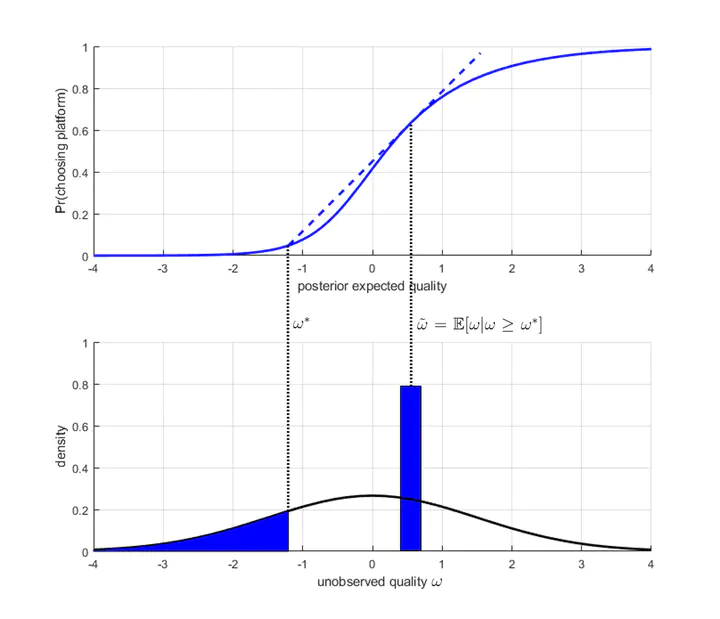
Abstract
This paper studies the welfare effects of Airbnb’s customer rating system using a structural empirical model of Bayesian persuasion with moral hazard. In 2019, over 71% of Airbnb listings in the United States displayed the highest possible rating of 5 stars. The Bayesian persuasion approach reveals that pooling all `adequate’ qualities above a certain threshold in this 5-star rating expands the set of listings customers may choose over the outside options, thereby increasing Airbnb’s market shares and profits.
I embed the Bayesian persuasion rating system design problem in a numerically solvable demand model of the short-term accommodation market. Moreover, the model incorporates Airbnb’s pricing and the hosts’ decision to join the platform and exert costly effort to improve their quality.
I exploit variation in the rating distribution and market conditions across 56 major travel destinations in the United States over 2018 and 2019 to structurally estimate this model and back out the distribution of unobserved quality. Counterfactual exercises suggest that Airbnb’s strategic rating system design led to a consumer welfare loss of USD288M and a redistribution of profits from high- to medium-quality hosts of almost USD750M compared to fully revealing ratings in the markets and period studied.